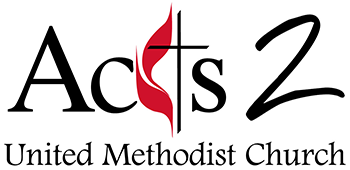In our culture love is most often defined as a feeling. But that’s not love according to the Bible. Love is something else completely—a willing choice to put the good of the other before our own. When we make that choice, we can form and strengthen relationships that can endure even the greatest challenges.
While disagreement is unavoidable, division is a choice. The most important thing to Jesus is his followers’ unity, and in the midst of disagreement, we can create a community where everyone is welcome, and even enemies can work together joyfully.
When someone does something wrong, we want them to get what they deserve. But when we’re the ones who do wrong, we want mercy! Thankfully, Jesus shows us a God who does not give us what we deserve but offers us grace, no matter how little we seem to deserve it.
When you’re going through a difficult time, someone might try to reassure you by saying, “God won’t give you more than you can handle.” But if we’re honest, we all have things we can’t handle alone. The good news is that God never expected us to handle everything on our own, and God helps us when we have more than we can handle.
Everyone wants to be happy, but our attempts to chase happiness often have the opposite effect—they make us miserable. While God delights in our happiness, God also has higher callings for us that are better and more life-giving than happiness alone.
We’ve all heard them—simple sayings that sound nice, but are simply untrue. You may have heard that “Doubting is dangerous.” But doubt is something we all experience, and in fact, doubt can actually help us to grow.
God’s love and forgiveness are for everyone, but young people will only know that if we commit ourselves to loving, supporting, and encouraging them on their life’s journey.
We like to think that the things we pursue are freely chosen, but we rarely realize how much our desires are shaped by the people and media we pay attention to. In the final chapter of Philippians, Paul shares the secret to being content in all circumstances and living a life worth wanting.
We live in a society obsessed with status—having the most wealth, power, or respect. Yet even when we get these things, we find that we’re not any happier. Instead, Paul teaches us to seek after what really matters most.
The Christian life isn't something we do in private—it's a public act of living as a citizen of heaven, and it has serious social and community consequences. Being good citizens of the gospel kingdom of Christ demands higher standards for our behavior, and when we live this way, we can enjoy a common life of joy and humility.

